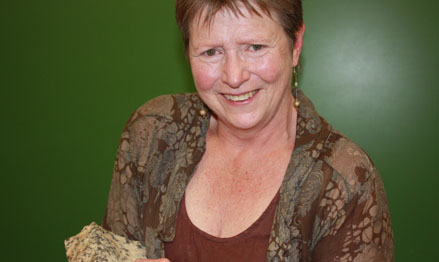Latest News Archive
Please select Category, Year, and then Month to display items
23 September 2020
|
Story Nitha Ramnath
|
Photo Supplied
 UFS students will be performing at the virtual ICDF on 24 September 2020.
UFS students will be performing at the virtual ICDF on 24 September 2020.
On 24 September 2020, South Africa will be celebrating Heritage Day. For the 25th anniversary of this celebration, South Africans are encouraged to celebrate their culture and the diversity of their beliefs and traditions in the wider context of a country that belongs to all its people. Dr Chitja Twala, Vice-Dean: Faculty of the Humanities at the UFS, says: “The importance of the day is that we must celebrate who we are and learn from each other.” The University of the Free
State (UFS) has a long tradition of commemorating Heritage Day and the ideas underpinning it. One way in which the UFS celebrates and recognises the tapestry of diverse cultures represented on its campuses is through its International Cultural Diversity
Festival hosted by the Office for International Affairs. The purpose of the event is to highlight on Heritage Day that international cultural diversity is a central tenet of the UFS community.
Pursuant to the tremendous challenges caused by the COVID-19 pandemic globally, the International Cultural Diversity Festival will this year be celebrated in a virtual format. Even during this uncertain time, it is important to find time to celebrate
our uniqueness and to appreciate one another’s heritage and culture in the spirit of our humanity.
Date: 24 September 2020
Time: 10:00
No registration is required!
For the 2020 Heritage Month celebrations, let us share elements about ourselves that make us proud of who we are! The diverse contributions to the 2020 virtual International Cultural Diversity Festival activities will highlight the university’s commitment towards creating a diverse, challenging intellectual environment. As a research-led university, the UFS strives to provide an environment in which new ideas are incubated and debated, contributing to its transformation process and African unity.
For more information contact Bulelwa Moikwatlhai on MaloB@ufs.ac.za
Prof Tredoux turns theories regarding the formation of metals on its head
2013-09-17
|
 |
|
Prof Marian Tredoux
17 September 2013 |
The latest research conducted by Prof Marian Tredoux of the Department of Geology, in collaboration with her research assistant Bianca Kennedy and their colleagues in Germany, placed established theories regarding how minerals of the platinum-group of elements are formed, under close scrutiny.
The article on this research of which Prof Tredoux is a co-author – ‘Noble metal nanoclusters and nanoparticles precede mineral formation in magmatic sulphide melts’ – was published in Nature Communications on 6 September 2013. It is an online journal for research of the highest quality in the fields of biological, physical and chemical sciences.
This study found that atoms of platinum and arsenic create nanoclusters, long before the mineral sperrylite can crystallise. Thus, the platinum does not occur as a primary sulphur compound. The research was conducted at the Steinmann Institute of the University of Bonn, Germany, as well as here in Bloemfontein.
Monetary support from Inkaba yeAfrica – a German-South African multidisciplinary and intercultural Earth Science collaborative of the National Research Foundation (NRF) – made this research possible. Studies are now also being conducted on other metals in the precious metal group, specifically palladium, rhodium and ruthenium.
The discovery of the nanoclusters and the combination with arsenic can have far-reaching consequences for the platinum mine industry, if it can be utilised to recover a greater amount of platinum ore and therefore less wastage ending up in mine dumps. This will signify optimal mining of a scarce and valuable metal, one of South Africa’s most important export products.
For Prof Tredoux, the research results also prove thoughts she already had some twenty years ago around the forming of platinum minerals. “Researchers laughed in my face, but the evidence had to wait for the development of technology to prove it.” Young researchers were very excited at recent congresses about the findings, since the new models can bring new insights.
“Chemistry researchers have been talking about platinum element clusters in watery environments for quite a while, but it was thought that these would not appear in magmas (molten rock) due to the high temperatures (>1 000 degrees celsius).”
Prof Tredoux has already delivered lectures at congresses in Scotland, Hungary, Sweden and Italy on this research.
Read the article at: http://www.nature.com/ncomms/2013/130906/ncomms3405/full/ncomms3405.html